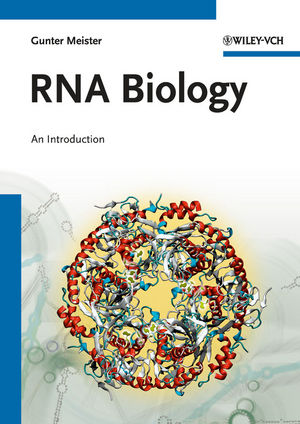RNA Biology: An IntroductionISBN: 978-3-527-32278-7
Paperback
380 pages
May 2011
 This is a Print-on-Demand title. It will be printed specifically to fill your order. Please allow an additional 10-15 days delivery time. The book is not returnable.
|
||||||
Written with biologists, biochemists and other molecular scientists in mind, this volume meets the long-felt need for a textbook dedicated to the topic and recreates the excitement surrounding the scientific revolution sparked by the discovery of RNA interference in 1998. Students and instructors alike will profit from the author's exclusive first-hand knowledge, drawing on his breakthrough discoveries at the Tuschl lab at Rockefeller University.
Gunter Meister abandons the traditionalist treatment of nucleic acids found in most biochemistry and molecular biology texts, adopting instead a modern approach in both concept and scope. The text is divided into three parts, on mRNA, non-coding RNA, and RNomics, and the author addresses the traditional roles of RNA in the transmission and regulation of genetic information, as well as the recently discovered functions of small RNA species in pathogen defense, cell differentiation and higher-level genomic regulation.
All set to become the standard for teaching molecular science to biologists and biochemists.
Gunter Meister abandons the traditionalist treatment of nucleic acids found in most biochemistry and molecular biology texts, adopting instead a modern approach in both concept and scope. The text is divided into three parts, on mRNA, non-coding RNA, and RNomics, and the author addresses the traditional roles of RNA in the transmission and regulation of genetic information, as well as the recently discovered functions of small RNA species in pathogen defense, cell differentiation and higher-level genomic regulation.
All set to become the standard for teaching molecular science to biologists and biochemists.



